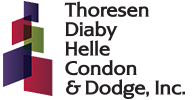Internal control questionnaires: How to see the complete picture
Businesses rely on internal controls to help ensure the accuracy and integrity of their financial statements, as well as prevent fraud, waste and abuse. Given their importance, internal controls are a key area of focus for internal and external auditors. Many auditors use detailed internal control questionnaires to help evaluate the internal control environment [...]
Is your company ready for agile auditing?
Agility — or the ability to react quickly — is essential to surviving and thriving in today’s competitive landscape. Though agile techniques were originally used in the realm of software development, this concept has many applications in the modern business world, including how companies approach their internal audits. Here’s an overview of agile auditing [...]
Auditing WIP
Many types of businesses — such as homebuilders and manufacturers — turn raw materials into finished products for customers. Production is a continuous process. So, any work that’s been started but isn’t yet completed before the end of the accounting period is reported as work in progress (WIP) under U.S. Generally Accepted Accounting Principles (GAAP). [...]
Auditing WIP
Many types of businesses — such as homebuilders and manufacturers — turn raw materials into finished products for customers. Production is a continuous process. So, any work that’s been started but isn’t yet completed before the end of the accounting period is reported as work in progress (WIP) under U.S. Generally Accepted Accounting Principles [...]
Follow the cutoff rules for revenue and expenses
Timing counts in financial reporting. Under the accrual method of accounting, the end of the accounting period serves as a strict “cutoff” for recognizing revenue and expenses. However, during the COVID-19 pandemic, managers may be tempted to show earnings or reduce losses. As a result, they may extend revenue cutoffs beyond the end of [...]
Accounting methods: Private companies have options
Businesses need financial information that’s accurate, relevant and timely. The Securities and Exchange Commission requires publicly traded companies to follow U.S. Generally Accepted Accounting Principles (GAAP), often considered the “gold standard” in financial reporting in the United States. But privately held companies can use simplified alternative accounting methods. What’s right for your business depends [...]
Accounting estimates present challenges in times of uncertainty
In today’s unprecedented market conditions, it can be challenging to predict metrics that underlie your company’s accounting estimates. Examples of key “unknowns” include how much longer certain pandemic issues will continue, how federal stimulus spending will affect the economy over the long run, and the extent to which tax laws and environment regulations may [...]
Hit or miss: Is your working capital on-target?
Working capital equals the difference between current assets and current liabilities. Organizations need a certain amount of working capital to run their operations smoothly. The optimal (or “target”) amount of working capital depends on the nature of operations and the industry. Inefficient working capital management can hinder growth and performance. Benchmarks The term “liquidity” [...]
How to Strengthen Your Internal Controls
Internal controls are a system of policies and procedures organizations put in place to protect assets and improve operating efficiency. Effective internal controls are critical to accurate financial reporting. A solid system of controls can help prevent, detect and correct financial misstatements due to errors and fraud. Internal and external risk factors evolve over [...]
Receivables may be a source of cash in tough times
Many companies are continuing to struggle financially during the COVID-19 pandemic. If cash is tight, what can your business do to shorten its cash cycle? The answer could lie in your outstanding accounts receivable. Here are five strategies to help convert receivables into cash ASAP. 1. Apply for a line of credit. A line [...]
